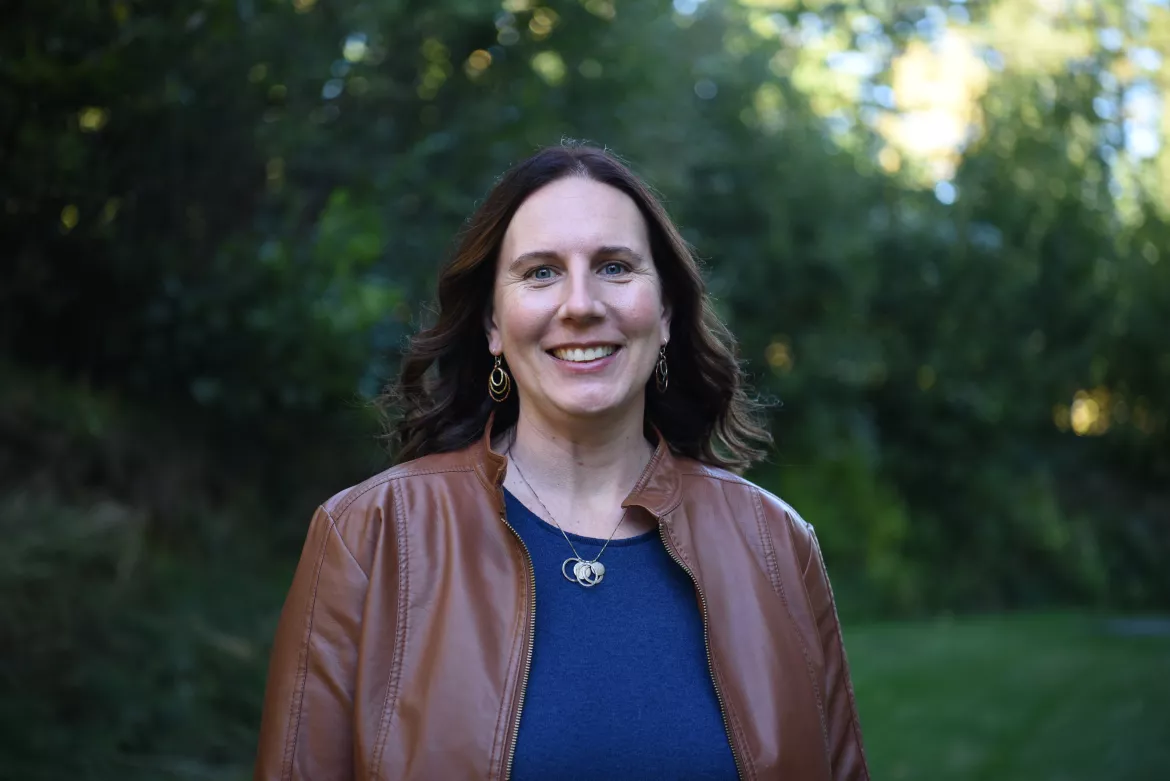Spotlight: MOT-N Assistant Professor Elisha Williams
Joining the UBC Master of Occupational Therapy - North cohort (MOT-N) program at UNBC was the culmination of a long-held goal for Dr. Elisha Williams. She became an assistant professor with the MOT-N in 2021 just prior to the new program’s launch.

“For a long time, teaching and coaching at the university level had been a dream of mine,” says Elisha. “When the MOT North cohort expansion was announced I jumped at the chance and applied.
“It’s been very rewarding so far. I love getting to know the students and learning from them. It’s great to see them experience an a-ha moment.”
Elisha brings a broad range of pedagogical interests to her role as an instructor, with a particular expertise in teaching wheelchair seating and positioning. In addition to instruction, Elisha is also focused on supporting rural clinical learning for students, including the development of community partnerships and connections for fieldwork placement opportunities.
“I was drawn to a career in occupational therapy because I wanted to help people live their life the way they want and participate in the activities they love.
“Now, having been in this field for over 15 years, I have also found that I really enjoy the creative problem solving that challenges you to figure out how to make the most of what you’ve got.”
Elisha grew up in Prince George. She received her dual Bachelor’s degree in Physical Education and Occupational Therapy from the University of Alberta, followed by a Masters of Arts in Disability Management at UNBC and a PhD in Exercise Science from the University of Alabama. Prior to joining the MOT-N, Elisha worked as a occupational therapist at Northern Health, serving in a variety of roles.
A partnership between UBC and UNBC, the UBC Master of Occupational Therapy – North cohort launched in the fall of 2022 at UNBC's Prince George campus to help inspire more graduates to practice in northern and rural B.C. communities and to improve culturally safe care, accessibility and community inclusion.